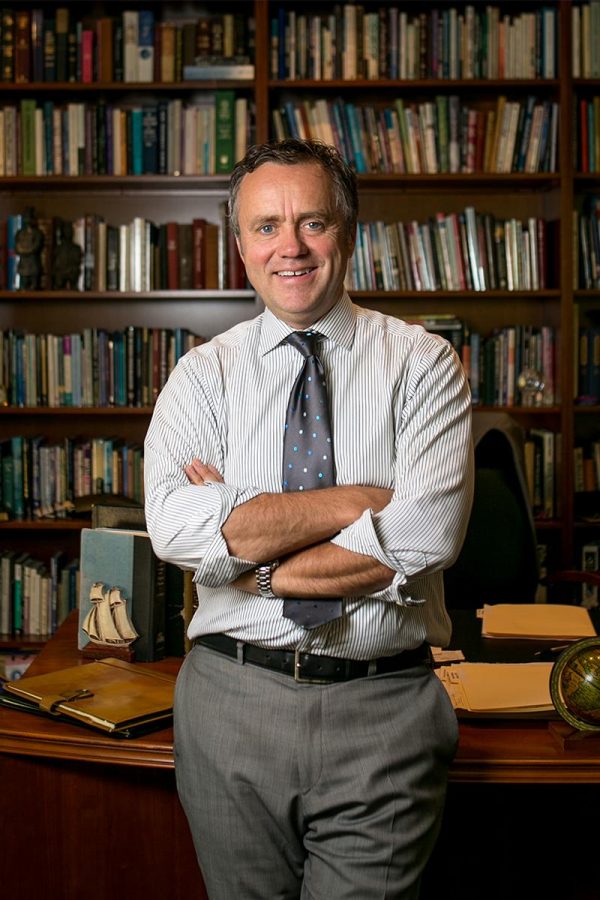Corey’s Corner — Love Your Frenemies
Dr. Barry Corey addresses Biola’s theme as it relates to the recent court decision regarding gay marriage and encourages students to respond with kindness.
September 9, 2015
I recently watched a segment on “60 Minutes” which highlighted the unexpected friendship between retired U.S. Senator (Okla.) Tom Coburn and President Barack Obama. Why unexpected? Coburn is a Republican who opposes gay marriage and abortion rights. He’s politically opposite of Obama on most issues, and yet he is one of the president’s closest friends in Congress. Here is what Coburn said of Obama:
“I just love him as a man. I think he’s a neat man. You don’t have to be the same to be friends. Matter of fact, the interesting friendships are the ones that are divergent.”
Coburn said his relationship with Obama “isn’t based on my political philosophy or his” but rather “on the fact that I think he’s a genuinely very smart, nice guy.”
Coburn and Obama’s friendship reminds me of the relationship between Robert George and Cornel West, political opposites yet profound friends who spoke on Biola’s campus last April as part of a dialogue with Rick Warren about friendship in the midst of disagreement.
One of my favorite moments from that night was seeing West and George holding hands during the closing prayer by Pastor Warren. Two ideological opponents, yet brothers in Christ. I would love to see more pictures like this at Biola University: meaningful friendships, forged through kindness, with those who are different from us. Kindness, as I noted in my convocation address, is different than niceness. Niceness is timid. Kindness is courageous and sometimes hard. We need to engage kindly with those whose stories are different than ours. As my friend Michael Lindsey, president of Gordon College, has said: “We can work shoulder-to-shoulder without necessarily seeing eye-to-eye.”
We are a diverse community in many ways. Politically. Culturally. Family backgrounds and denominations. Ethnically.
Sometimes friendships are not made easily. Most everything we see in the American media favors shrill, partisan argument over nuanced, charitable discourse. Facebook and Twitter are frequently heated forums where brazen opinions and emotionally charged debates crowd out nuance and empathy.
But there is a better way. As followers of Jesus, we can truly be countercultural if we can model Christ-like kindness in a culture of cutthroat debate. We can be champions of a radical, fearless and courageous love that “abounds more and more,” which is this year’s theme at Biola (Phil. 1:9-11).
I would love for this year at Biola University to be The Year of Kindness. And next year. And the year after.
Jesus calls us to the way of kindness — selfless, humble, vulnerable, open and faithful. He calls us to enter into authentic relationships with those of differing views. He calls us to forge unexpected friendships, however awkward and messy and frustrating they may be. In a diverse community like Biola, kindness doesn’t mean huddling around people who look and sound like us. Kindness means reaching out to those whose stories are different than ours, having meals with them, listening to them, loving them as Jesus loves, even if we disagree on important things.
Much happening in our world today can breed tension, resentment and pain, even in a community like Biola. This summer alone demonstrated this. The ongoing #BlackLivesMatter conversation, the Supreme Court’s legalization of gay marriage, the newly invigorated debate about abortion — these are just some of the issues that reinforce how desperately kindness and empathy are needed in our polarized society. And with an election year now revving up, the need will only become greater.
May I challenge you, Biola community, to lead with kindness this year. In a world that abounds with hate and fear, let us abound with loving-kindness.







